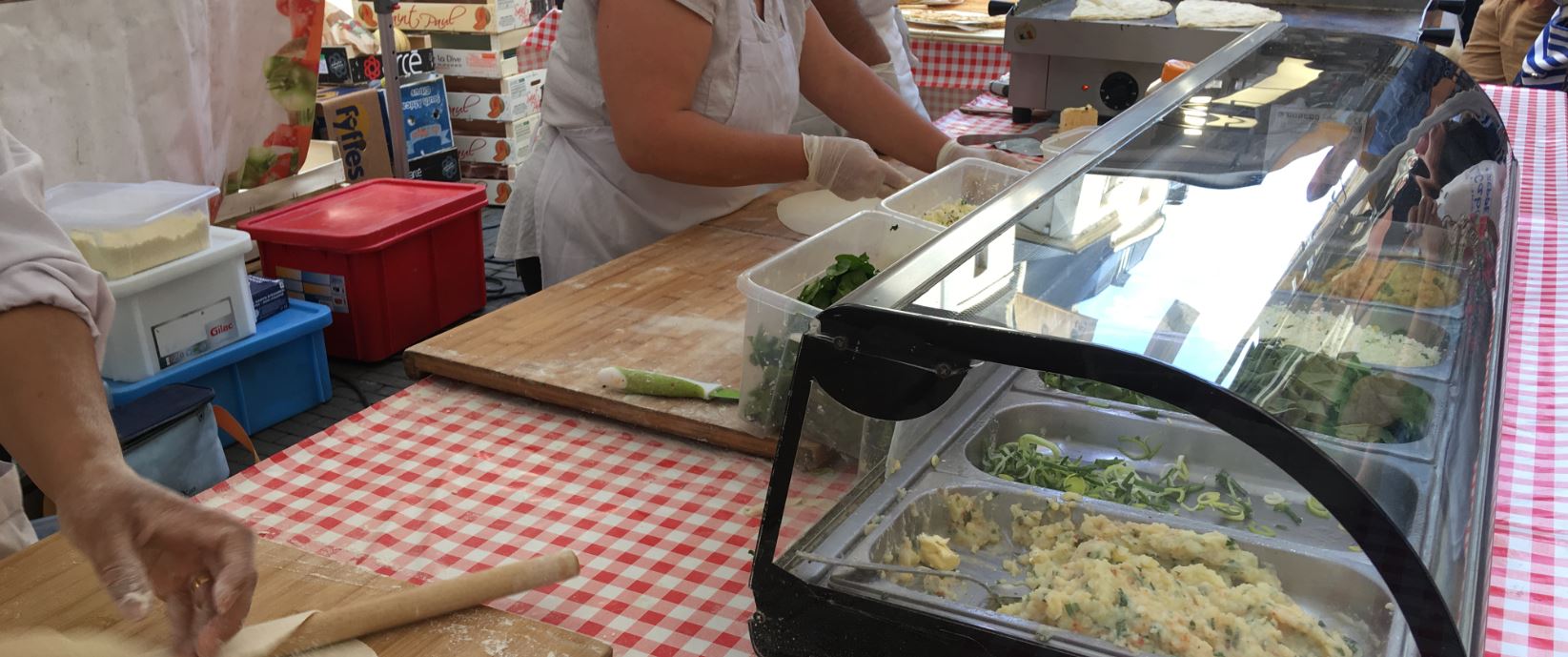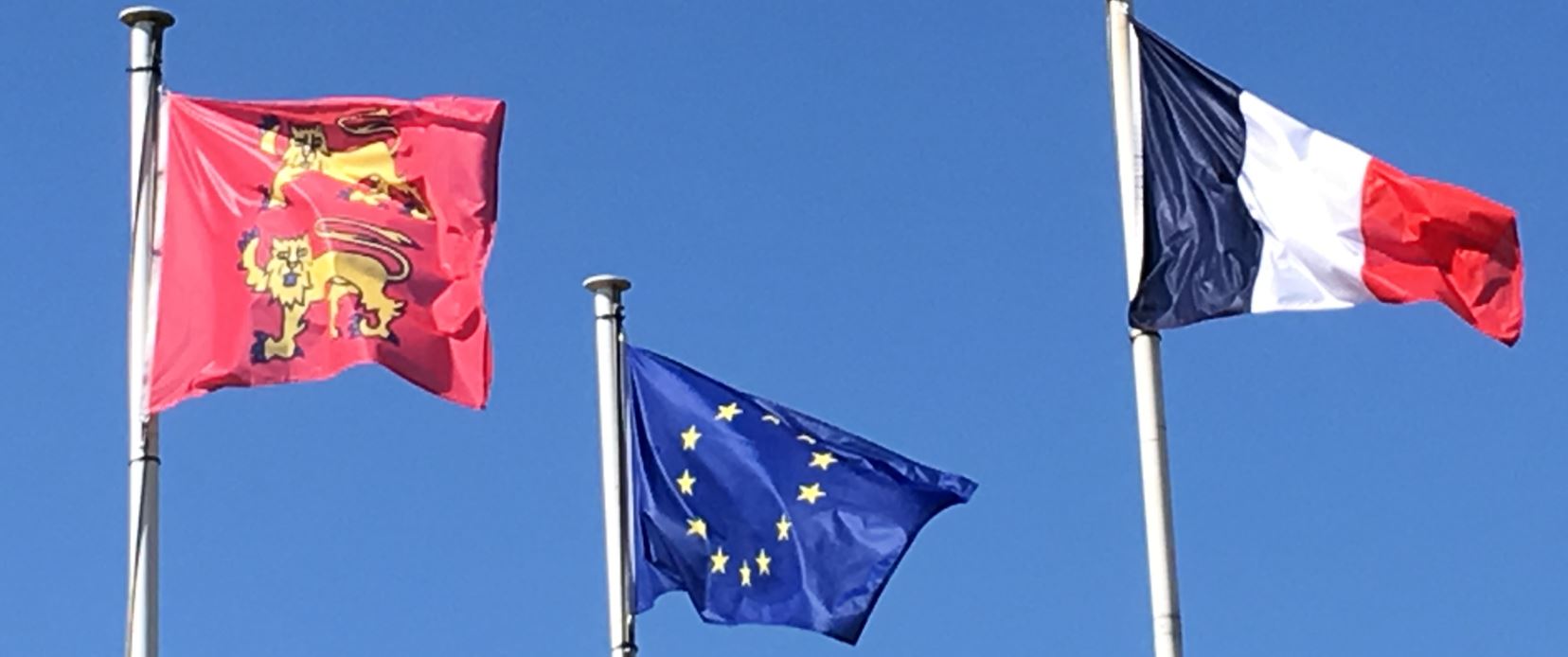Rappel La Différence
Claude Monet was a regular visit to the coast at Varengeville sur Mer, best-known now for its Gertrude Jekyll-designed garden around an Edwin Lutyens manor house. The picture below of a yacht on the channel serves as an inadvertent homage to impressionism (simply by virtue of it being a zoom into a digital zoom). On that part of the coast, crêpes and moules et frites are far less in evidence that might have been expected.

A long queue had formed at the stall at Dieppe market pictured below, where a chap named Botek was selling traditional Turkish flatbreads (boasting a 100-year family history) with a variety of fillings using local Normand ingredients. A little bit of fusion, although not much, but what was more notable – to me at least – was the standard of food hygiene. You can see in the picture below that 2 of the 3 people on the stall are wearing disposable gloves (albeit not blue) which were changed periodically whilst the queue moved on and Botek himself always removed his when handling cash.

From one end of the food chain to the other, the Normandy economy features all sorts of food and drink, of course, not just the artisanal. The road out of a small town nestled in the rolling countryside runs past a fairly large frozen food manufacturer, Gelaé, specialising here in vegetable products. Their website reports that the “company promotes local sourcing where possible, especially in vegetables, and therefore contributes to the development of the local economy by promoting the employment of staff from the regions in which the production sites are established”. Admirable indeed, and from its size the site must be a significant employer in the area. On the subject of artisanal, it is notable that local boulangeries often now describe themselves as artisanal on their fascias. The distinction is presumably related to supermarket baguettes rather than sandwich bread, but is another indicator of the slow drift in French food culture that I referenced in the previous post (see ‘Vive La Différence’).

Changes at the agricultural end of the agri-food system can be seen at the local cultural centre in Blangy sur Bresle (pictured on the left below). There are a number of different sections to the museum, one of which contains agricultural implements dating back a century and more. The manual labour required to operate many of these is clearly a world away from the mechanical agriculture practiced today. Other industries were the same, with children as young as 6 working in the glass industry in the area lugging around moulds weighing up to 15kg. The advent of industrialised techniques made for lighter work, but it also made for less work in the countryside. The legacy of this can be seen across Normandy today, as it can in the UK, with very little employment in agriculture.

It has been an interesting visit experiencing aspects of the agri-food system in a nearby but still different culture. The balance between small and large is different to the UK, but the individual components are very similar. Small differences persist and make for the attraction of travel alongside the experience of specific food and drink. I’ve been enjoying fresh baguettes for as long as I can remember, as soon off the ferry as possible, and long may it continue.
